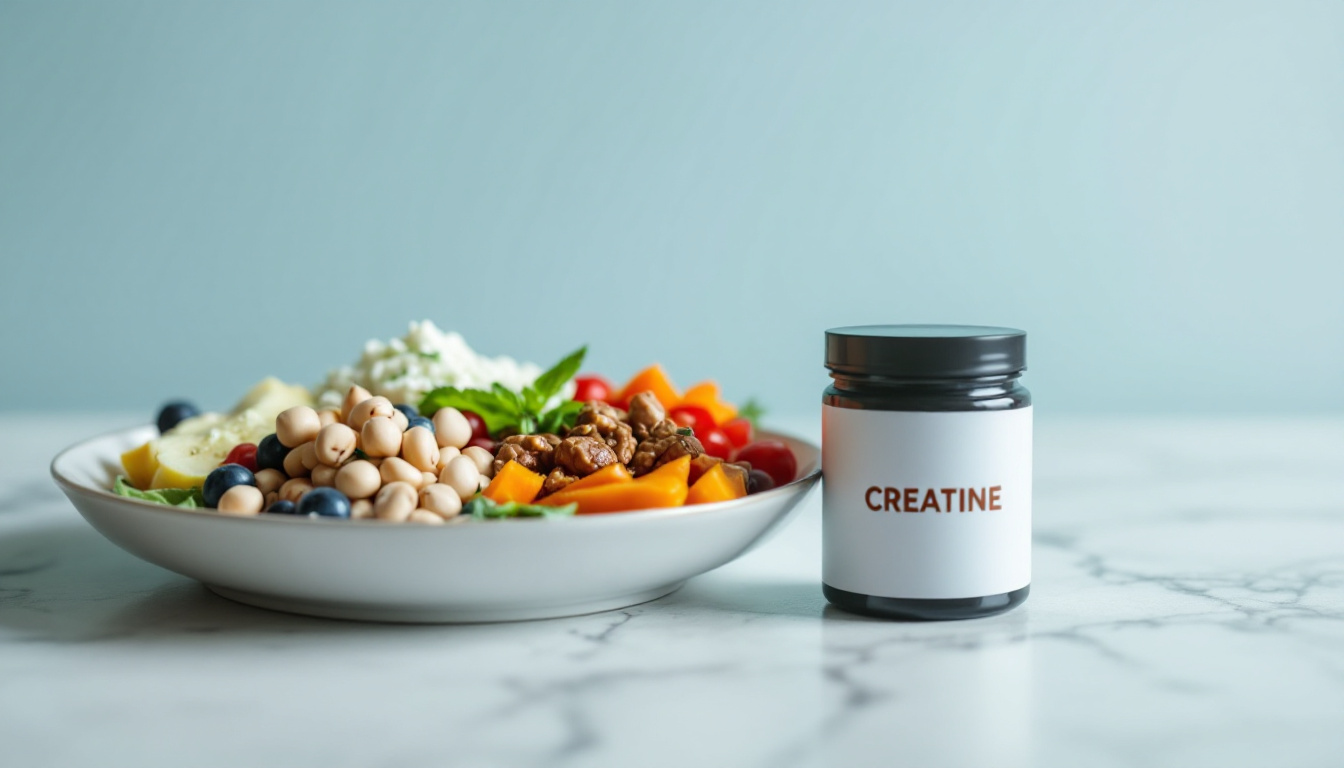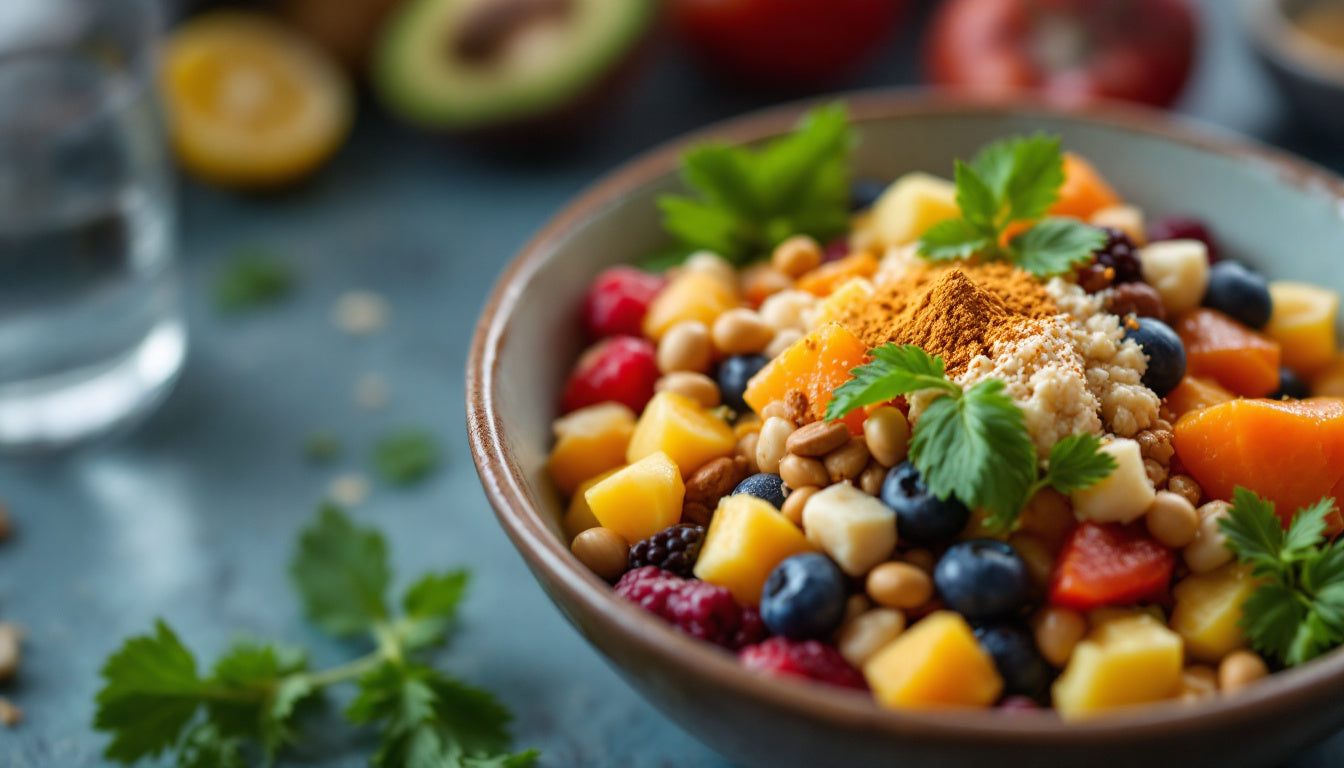When you think about creatine, the image of a supplement powder mixed into a shaker bottle might immediately spring to mind. But what if we told you there's another way to incorporate this popular fitness supplement into your routine? Creatine is heat stable, you can indeed put creatine in food, and it might just be a game-changer for your dietary habits. This approach not only allows for a more enjoyable consumption experience but also opens up a world of culinary creativity, enabling you to enhance your meals while reaping the benefits of this powerful supplement.
Understanding Creatine: A Quick Overview
Creatine is a naturally occurring compound found in muscle cells. It helps your muscles produce energy during heavy lifting or high-intensity exercise. While your body produces some creatine, you can also obtain it from dietary sources, primarily meat and fish, or through supplementation. The role of creatine in energy production is particularly significant for athletes and fitness enthusiasts, as it plays a crucial part in the ATP-CP energy system, which fuels short bursts of intense activity. This makes it a popular choice among those looking to improve their performance in sports and workouts.

The Science Behind Creatine
Creatine works by increasing your muscles' phosphocreatine stores, allowing for more ATP production, which is the primary energy carrier in cells. This process is crucial for enhancing athletic performance, increasing strength, and promoting muscle growth. The science behind creatine supplementation has been extensively studied, with numerous research studies demonstrating its efficacy in improving exercise performance, particularly in high-intensity, short-duration activities such as sprinting, weightlifting, and interval training. Furthermore, creatine has been shown to aid in recovery, reduce muscle soreness, and even support cognitive function, making it a multifaceted supplement that can benefit various aspects of health and fitness.
Most people consume creatine in powder form, mixing it with water or a sports drink. However, incorporating it into food can offer a more seamless integration into your daily diet. This method not only helps mask the taste of creatine but also allows for a more enjoyable consumption experience, especially for those who may find it challenging to drink supplements regularly. By adding creatine to your meals, you can create a routine that feels less like a chore and more like a natural part of your eating habits.
Benefits of Adding Creatine to Food
Integrating creatine into your meals can provide several advantages, particularly for those who may not enjoy the taste or texture of creatine in liquid form. It can also help maintain consistent creatine levels throughout the day. This is particularly important because the effectiveness of creatine is often linked to regular and consistent intake, which can be more easily achieved when it is incorporated into your meals rather than taken as a standalone supplement.
Enhanced Absorption
When creatine is consumed with food, particularly carbohydrates, it may enhance absorption. The insulin spike from carbs can help transport creatine into the muscles more effectively, maximizing its benefits. This synergistic effect is particularly beneficial for athletes and fitness enthusiasts who are looking to optimize their performance and recovery. Additionally, consuming creatine with a meal can help mitigate any potential gastrointestinal discomfort that some individuals may experience when taking creatine on an empty stomach. By pairing creatine with food, you can create a more balanced intake that supports your overall health and fitness goals.
Convenience and Consistency
Adding creatine to your meals can make it easier to remember to take your supplement, ensuring you maintain a consistent intake. This method can be particularly beneficial for those with busy lifestyles who might forget to take creatine separately. By incorporating it into your daily meals, you can create a routine that seamlessly integrates supplementation into your lifestyle. This not only helps with adherence to your supplementation regimen but also allows you to enjoy the benefits of creatine without the hassle of remembering to take it at specific times throughout the day. Furthermore, this approach can encourage more mindful eating habits, as you become more aware of the nutritional content of your meals and how they contribute to your overall health and fitness.
How to Incorporate Creatine into Your Diet
Incorporating creatine into your food doesn't have to be complicated. Here are some practical ways to do so, ensuring you get the most out of your supplement. The key is to find creative and enjoyable ways to add creatine to your meals without compromising taste or texture. This can involve experimenting with different recipes and meal ideas that suit your preferences and dietary needs.
Mixing Creatine with Breakfast
Start your day by adding creatine to your morning oatmeal or yogurt. Simply stir in the recommended dose and enjoy a nutritious breakfast that fuels your muscles for the day ahead. You can also consider adding creatine to smoothies or protein pancakes, which can provide a delicious and energizing start to your day. For example, a banana and peanut butter smoothie with a scoop of creatine can be a tasty way to kick off your morning while ensuring you’re getting your daily dose of this powerful supplement. Additionally, you can enhance your breakfast by incorporating other nutrient-dense ingredients such as chia seeds, flaxseeds, or berries, which can provide additional health benefits and flavor.
Creatine in Smoothies and Shakes
Blend creatine into your favorite smoothie or protein shake. This method not only masks any potential taste but also provides a refreshing and energizing drink post-workout. You can experiment with various ingredients, such as spinach, kale, or avocado, to create a nutrient-packed smoothie that supports your fitness goals. Adding creatine to a post-workout shake can be particularly effective, as it allows for quick recovery and replenishment of energy stores. Consider using a combination of protein powder, fruits, and healthy fats to create a balanced shake that not only tastes great but also provides the necessary nutrients for muscle recovery and growth.
Incorporating Creatine into Baked Goods
For those who enjoy baking, consider adding creatine to your recipes. Whether it's pancakes, muffins, or protein bars, creatine can be seamlessly integrated without altering the taste or texture significantly. You can also explore creative baking ideas, such as adding creatine to energy balls or homemade granola bars, which can serve as convenient snacks throughout the day. By incorporating creatine into your baked goods, you can create delicious treats that not only satisfy your sweet tooth but also provide the benefits of this powerful supplement. Additionally, consider using whole grain flours or natural sweeteners to enhance the nutritional profile of your baked goods, making them a healthier option for snacking or meal prep.
Considerations and Tips
While adding creatine to food is generally safe, there are a few considerations to keep in mind to ensure you maximize its benefits. It's essential to be mindful of the overall balance of your diet and how creatine fits into your nutritional needs. This includes considering your overall caloric intake, macronutrient distribution, and any specific dietary restrictions you may have.
Dosage and Timing
It's important to adhere to the recommended dosage of creatine, typically around 3-5 grams per day. Timing can also play a role; consuming creatine post-workout with a meal may enhance muscle recovery and growth. Some individuals may also choose to implement a loading phase, where they consume higher doses of creatine for a short period to saturate their muscles more quickly. However, it's crucial to consult with a healthcare professional or a registered dietitian before making any significant changes to your supplementation routine. They can provide personalized recommendations based on your individual needs and goals, ensuring you get the most out of your creatine supplementation.
Hydration is Key
Creatine can cause water retention in muscles, so it's crucial to stay hydrated. Ensure you're drinking plenty of water throughout the day, especially when consuming creatine with meals. Proper hydration is essential for overall health and can also enhance the effectiveness of creatine supplementation. Dehydration can lead to decreased performance, increased fatigue, and even muscle cramps, which can hinder your fitness progress. To support optimal hydration, consider carrying a water bottle with you throughout the day and setting reminders to drink water regularly. Additionally, incorporating hydrating foods such as fruits and vegetables into your diet can further support your hydration efforts.
Potential Side Effects of Creatine
While creatine is generally considered safe for most individuals, it’s important to be aware of potential side effects. Some people may experience gastrointestinal discomfort, such as bloating, cramping, or diarrhea, particularly when taking higher doses or when creatine is consumed on an empty stomach. To minimize these effects, it’s advisable to start with a lower dose and gradually increase it as your body adjusts. Additionally, consuming creatine with food can help alleviate any digestive issues. It's also worth noting that individuals with pre-existing kidney conditions should consult with a healthcare professional before starting creatine supplementation, as it may exacerbate certain health issues.
Creative: A Versatile Approach to Supplementation
Incorporating creatine into your food can be a versatile and effective way to enhance your fitness regimen. By understanding the benefits and methods of adding creatine to your diet, you can enjoy the advantages of this powerful supplement without disrupting your daily routine. This approach not only allows for greater flexibility in how you consume creatine but also encourages a more holistic view of nutrition and supplementation.
Whether you're a seasoned athlete or just starting your fitness journey, experimenting with creatine in your meals could provide the boost you need to reach your goals. So, next time you're preparing a meal, consider sprinkling in some creatine and see how it fits into your lifestyle. With a little creativity and planning, you can make the most of your supplementation while enjoying delicious and nutritious meals that support your health and fitness aspirations.
